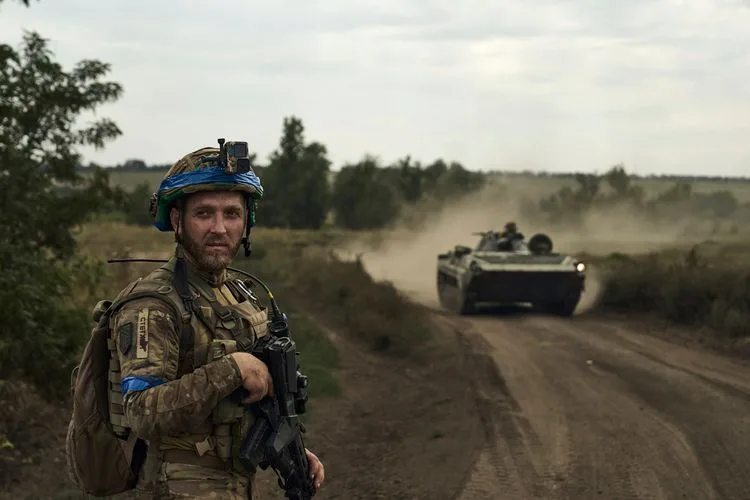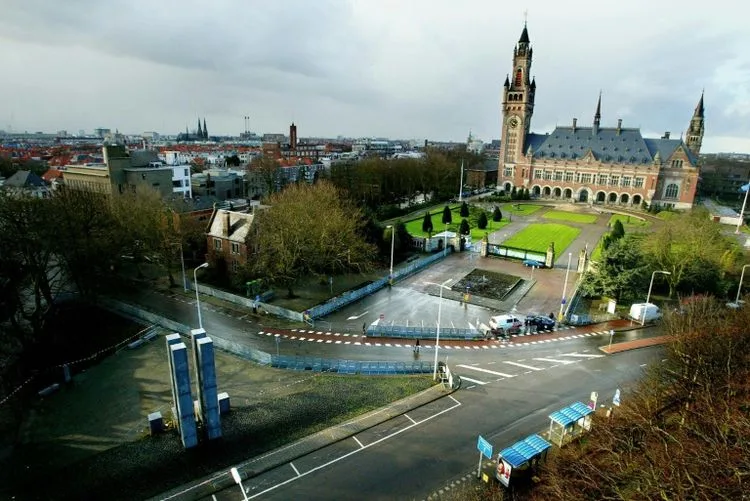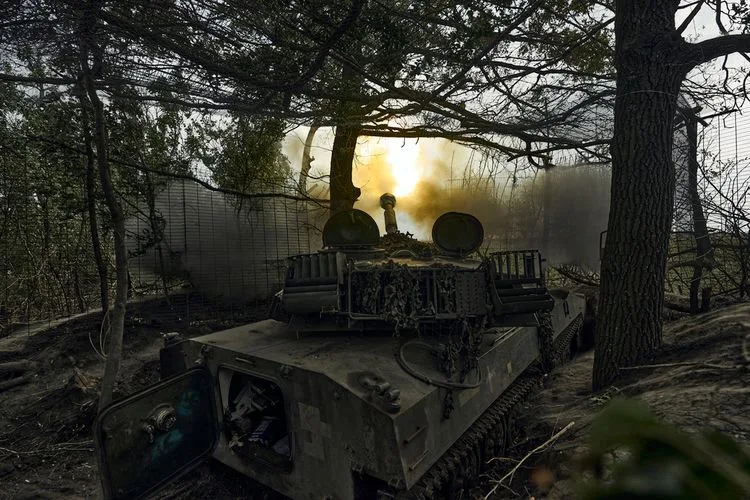The courtroom witnessed Ukraine’s legal team situated only meters away from their Russian counterparts within the Peace Palace in The Hague
Ukraine presented its case before the International Court of Justice (ICJ) on Tuesday, asserting that the court should compel Russia to provide reparations for what Kyiv termed a “war of annihilation.”
The Ukrainian delegation argued that the very principles of international law were at stake in the conflict.
Anton Korynevych, Ukraine’s lead representative, addressed the court, making a strong case for accountability. He emphasized that no nation, including Russia, should be considered above the law and called upon the ICJ to affirm the illegality of Russia’s actions, halt ongoing abuses, and mandate reparations.
The courtroom witnessed Ukraine’s legal team situated only meters away from their Russian counterparts within the Peace Palace in The Hague.




Korynevych emphasized the court’s authority to declare Russia’s actions unlawful and to issue orders for their cessation, including the imposition of reparations. Ukraine initiated proceedings against Russia at the ICJ a few days after Russia’s invasion on February 24, 2022, indicating its commitment to pursuing all available avenues, including legal, diplomatic, and military, to address the aggression.




Kyiv’s central argument revolves around Russian President Vladimir Putin’s assertion of a purported “genocide” against pro-Russian populations in eastern Ukraine, which was cited as a pretext for Moscow’s invasion. Ukraine says that this constitutes a misapplication of the United Nations Genocide Convention, a treaty ratified by both Ukraine and Russia in 1948.
Korynevych underscored the ICJ’s broad jurisdiction over matters concerning the Genocide Convention. He raised the question of whether it was admissible for a state to exploit the Genocide Convention to legitimize a conquest-driven war.




In a preliminary ruling in March of the previous year, the ICJ sided with Ukraine and directed Russia to immediately cease its invasion. However, Russia contested this judgment, arguing that the ICJ lacked the legal authority to adjudicate the case.
Korynevych concluded by emphasizing that Russia’s refusal to comply with the ICJ’s decision constituted an assault on the court’s authority. He underscored that each missile launched by Russia at Ukrainian cities represented an act of defiance against the ICJ.

